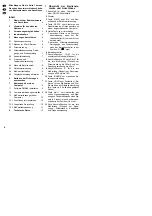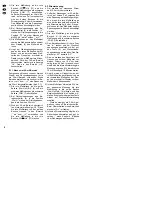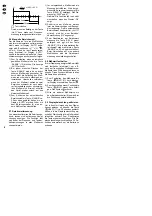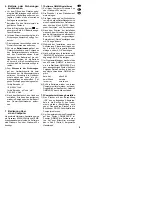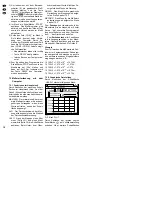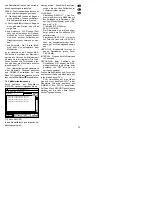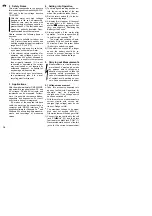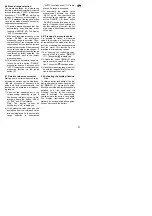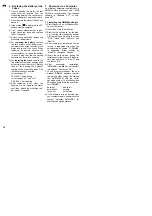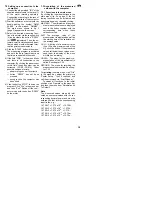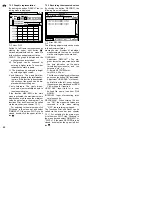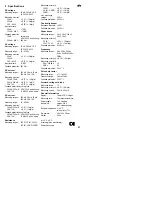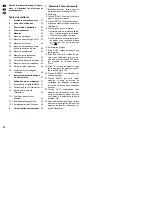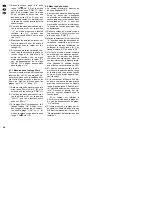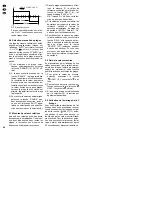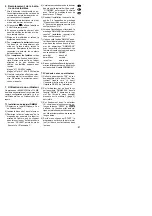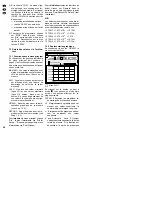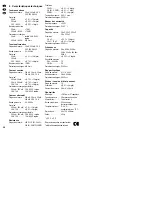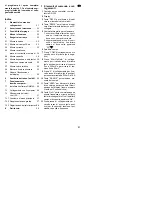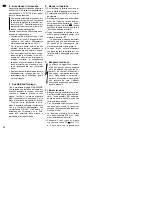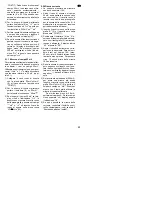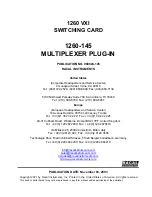
6
Replacing the Battery or the
Fuses
●
Prior to opening the meter, the test
leads must be removed from the
measuring points of the circuit to pre-
vent any hazard of an electric shock.
●
Never operate the meter if it has been
opened.
a. If the symbol
is displayed, the 9 V
battery must be replaced.
b. If no current measurement is pos-
sible, check the fuses and replace
them, if required.
1) Switch off the meter and remove the
protective rubber frame.
2) For replacing the battery, remove
the two screws of the battery com-
partment cover at the rear side of the
meter and take off the cover. When
replacing the battery, observe the
correct polarity, i. e. insert the battery
in such a way that the connecting
contacts lock into place correctly.
3) For replacing the fuses, remove the
two screws of the lower housing shell
at the rear side of the meter. Carefully
take off the housing shell without
tearing off the connecting leads. The
following fuses are inserted:
for the ranges “A”:
10 A/600 V, quick-acting
for the ranges “µA” and “mA”:
0.5 A/250 V, quick-acting
4) After replacing them, close the
housing. Do not operate the meter
until then. Attach the protective rub-
ber frame, if required.
7
Operation via a Computer
As minimum hardware requirements, a
80486/33 MHz processor and 16 MB
RAM are recommended. The required
software is Windows 3.x
®
‚ or Win-
dows 95
®
.
7.1 Installing the DMM40 software
1) Start Windows 3.x
®
‚ or Windows 95
®
‚
on your computer.
2) Insert disk 1 into the disk drive.
3) Start the file “setup.exe” on the disk,
e. g. from the file manager by double-
clicking the file name or via the menu
“FILE”, menu item “Execute” and
“Search”.
4) After starting the installation, the di-
rectory is requested into which the
software is to be copied. “C:\DMM40”
is suggested. Either confirm by
“Finish” or change by “Change”.
5) Insert the second disk during the
installion after the request “Please in-
sert disk number 2 in drive A” and
confirm by “OK”.
6) After successful installation,
“DMM40(R) installation successful!”
is displayed. Confirm by “OK”.
7) In the program manager, the new
window “DMM40” appears, contain-
ing among other things the starting
file “DMM40.EXE” with the corre-
sponding symbol. The following files
have been copied into the new direc-
tory “DMM40”:
data.dat
lvdev5.dll
dmm40.exe
serpdrv
iw-en.lrm
uninst.exe
8) If the software is to be deleted from
your computer again, double-click the
symbol “Uninstall DMM40(R)” for
starting the deletion process.
GB
18

